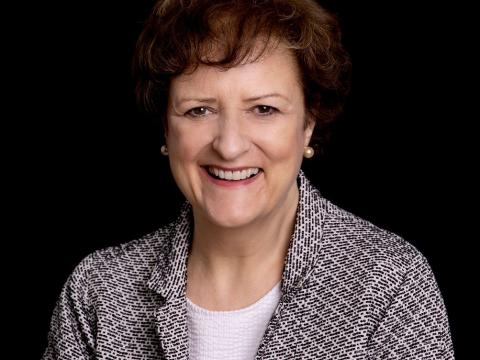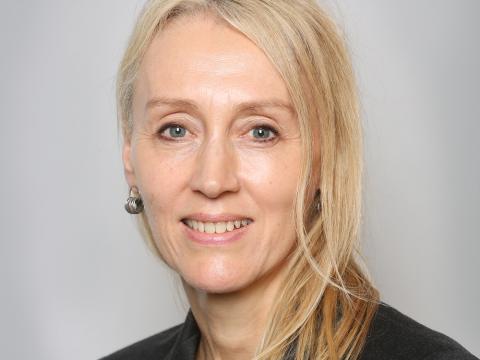Webinar: What should the COVID-19 inquiry focus on?
Thursday 23 June 2022, 10.00–11.15

The public inquiry into the handling of the COVID-19 pandemic, chaired by Baroness Hallett, has consulted on the terms of reference and made its recommendations to government which should be finalised later this year.
The primary purpose of the public inquiry will be to identify the lessons learned from the way the pandemic was managed, and how to do better in future.
In this webinar, we explored:
- considering all the issues, what are the key questions for the inquiry to address
- how the inquiry could be most impactful, given the experience of previous inquiries
Speakers
Tim joined the Health Foundation in 2014. He works in the policy team, which works to analyse, understand, and inform national policies on health and social care in England.
Before he joined the Health Foundation, Tim spent over ten years at the Department of Health and Social Care working on policy and legislation in a variety of roles. This included work on NHS strategy, health and social care integration and the Government's response to the Francis Inquiry. Prior to that, he worked on NHS performance across a range of areas including primary care, cancer and mental health. He was also Secretary to the Departmental and NHS Management Boards and an Assistant Private Secretary to the Chief Medical Officer.
Tim has also spent time at NHS England and NHS Improvement, as well three years working on children's social care policy at the Department for Education. He has an MSc in Health Policy from Imperial College London.

Emma is the director of research at the Institute for Government, where she has oversight of the organisation’s research programme and leads work on strategy, audience and impact, and resourcing. She helped build the Institute’s partnerships function.
Emma has extensive experience of public policy, Whitehall and Westminster. At the Institute, she has led work on policy making and implementation, public engagement, net zero and is the IfG’s expert on public inquiries, leading our work on the Covid-19 inquiry.
Prior to joining the Institute, she was a director in the RSA’s public policy team, working on a range of issues including public service reform, social exclusion and governance. Emma has also worked as a research fellow at IPPR on social policy, and she is a former president of Oxford University Student Union.
She is a commentator both in print and broadcast, for outlets including the Today programme, Newsnight, BBC News, Sky News and is a regular on the Institute’s podcast, Inside Briefing. She has written for a range of publications including The Guardian, The Times, Prospect and Civil Service World.

Una draws on wide experience of government and public service. She worked in Whitehall on health policy for over 25 years and was Permanent Secretary at the Department of Health and Social Care between 2010 and 2016.. Una is perhaps unusual amongst civil servants in having both run a public inquiry (The Kennedy Inquiry on Paediatric Cardiac Surgery, 1998-2001); and served on the panel of another later in her career (The Renewable Heat Incentive Inquiry, Northern Ireland, 2017-2020). In addition, whilst at the DHSC she was closely involved in setting up several inquiries including that into Mid Staffs. Una now works as a leadership coach and mentor to senior leaders in the public sector and is an experienced non-executive director on charitable and educational boards including the London School of Hygiene and Topical Medicine; Lloyds Register Foundation and the Ashmolean Museum in Oxford.

Chair
Jennifer was Chief Executive of the Nuffield Trust from 2008 to 2013. Prior to this, she was Director of Policy at The King’s Fund and was the policy advisor to the Chief Executive of the National Health Service between 1998 and 2000. Jennifer has undertaken research and written widely on health care reform both in the UK and internationally.
Originally trained in medicine, Jennifer practised mainly paediatric medicine, prior to a career in policy analysis. She has a Master’s in public health and a PhD in health services research from the London School of Hygiene and Tropical Medicine. In 1990–91, Jennifer was a Harkness Fellow in New York.
Jennifer was appointed as a non-executive board member of the UK Health Security Agency in April 2022. She has served as a Board member of the Health Care Commission 2004–2009; the Audit Commission 2003–2012; and the Care Quality Commission 2013–2016. She has led two national inquiries for government: on the setting up of published ratings of quality of NHS and social care providers in England (2013); and on the setting up of ratings for general practices (2015). She was also a member of the Parliamentary Review Panel for the Welsh Assembly Government advising on the future strategy for the NHS and social care in Wales (2017–2018).
In 2009, Jennifer was elected a fellow of the Royal College of Physicians, and in 2019 was elected as a fellow of the Academy of Medical Sciences. She was awarded a CBE for services to public health in 2013, and a Doctor of Science from Bristol University in 2016. She has held visiting professorships at the London School of Hygiene & Tropical Medicine, the London School of Economics, and Imperial College Business School.

Further reading
Work with us
We look for talented and passionate individuals as everyone at the Health Foundation has an important role to play.
View current vacanciesThe Q community
Q is an initiative connecting people with improvement expertise across the UK.
Find out more

